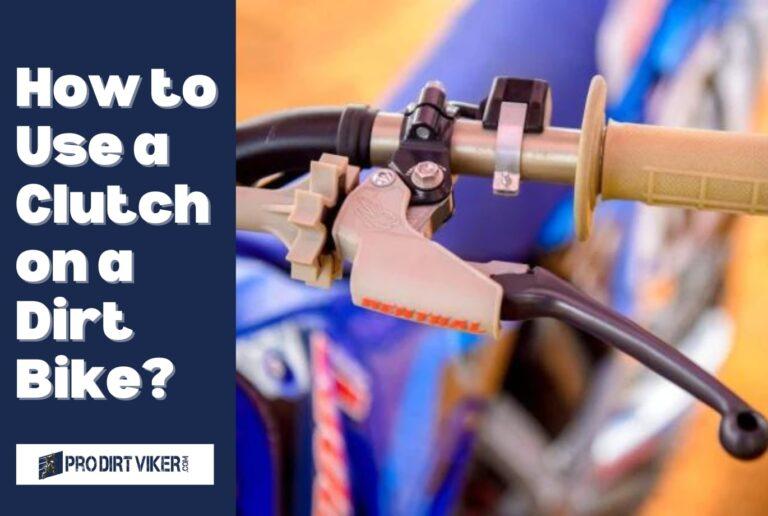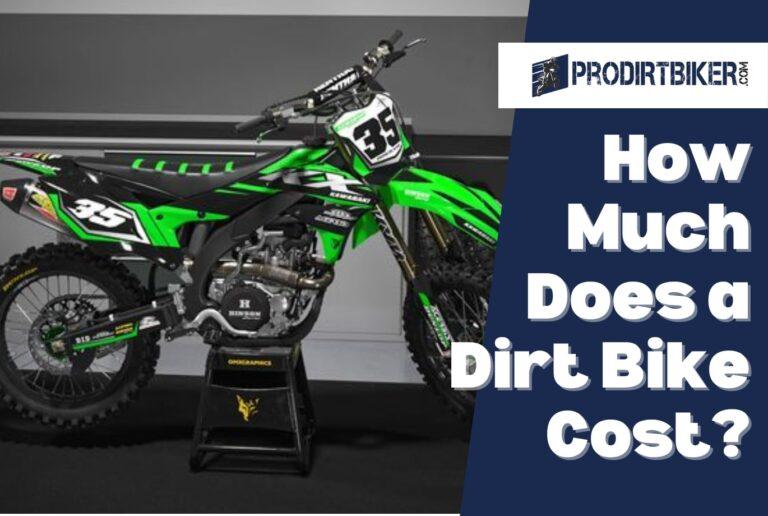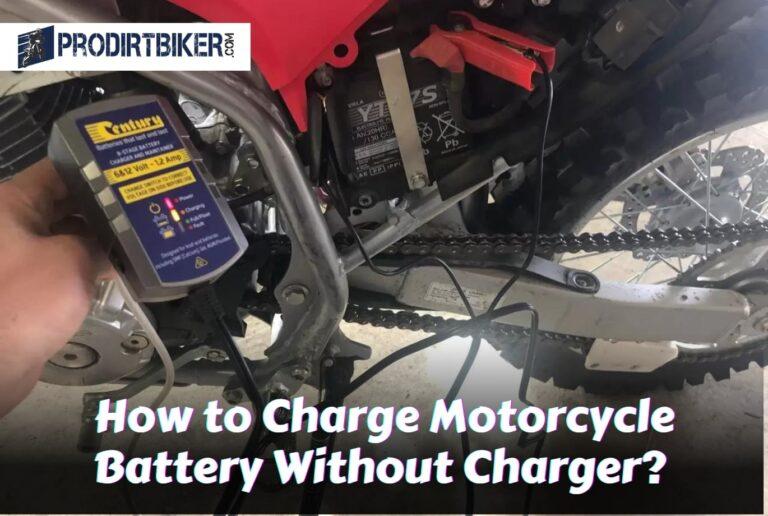Can You Ride A Dirt Bike In A Neighborhood? Know the Legalities!
Riding a dirt bike in a neighborhood is generally illegal due to the lack of street legal features such as headlights, taillights, turn signals, insurance, and registration.

Credit: www.way.com
Understanding The Legalities Of Riding A Dirt Bike In A Neighborhood
Restrictions on riding dirt bikes in residential areas
Riding a dirt bike in a neighborhood can be an exciting and convenient way to enjoy your off-road adventures. However, it’s crucial to understand the legalities surrounding this activity. In many states, riding a dirt bike in a neighborhood is considered illegal. One of the main reasons for this is that dirt bikes are typically not designed to meet the requirements of street-legal vehicles.
Most dirt bikes lack specific features that make them street legal. They do not have headlights, taillights, turn signals, insurance, or registration. These features are essential for ensuring the safety and compliance of vehicles on public roads. Without these features, dirt bikes are not suitable for riding in residential areas.
Due to these limitations, many states enforce strict restrictions on riding dirt bikes in residential areas. While there may be exceptions in some states, such as Indiana, Georgia, or Washington, most states prohibit riding dirt bikes in neighborhoods.
Lack of street legal features on dirt bikes
- Dirt bikes do not have headlights, taillights, or turn signals
- They also lack insurance and registration
Riding a street-legal vehicle ensures the safety of both the rider and other road users. The absence of these features on dirt bikes means they are not equipped to share the road with cars, bikes, or pedestrians in a neighborhood setting. Therefore, it is important to consider alternative riding options such as designated off-road trails or private locations that allow dirt bike riding.
No headlights, taillights, turn signals, insurance, or registration
| No | Feature |
|---|---|
| 1. | Headlights |
| 2. | Taillights |
| 3. | Turn signals |
| 4. | Insurance |
| 5. | Registration |
Without these crucial features, riding a dirt bike in a neighborhood is not only illegal but also poses significant safety risks. It is essential to respect and abide by the laws and regulations in your area to avoid legal consequences and potential accidents.
State Law Regulations For Riding Dirt Bikes In Neighborhoods
Riding dirt bikes in a neighborhood can be an exciting way to enjoy off-road fun close to home. However, it’s important to be aware of the laws and regulations surrounding this activity in your state. Laws and regulations vary by state, so it’s essential to understand the specific rules that apply to your area. Let’s explore some examples from North Carolina, Indiana, and other states to get a better understanding of the regulations in place.
Laws and regulations vary by state
Different states have different laws and regulations when it comes to riding dirt bikes in neighborhoods. It’s crucial to familiarize yourself with the specific regulations in your state to ensure you are complying with the law. Let’s take a closer look at the examples from North Carolina and Indiana.
Examples from North Carolina, Indiana, and other states
In North Carolina, the law prohibits operating all-terrain vehicles (ATVs) or dirt bikes on public streets, roads, or highways except for crossing purposes. This means that riding dirt bikes in residential areas of North Carolina is generally not permitted by law.
On the other hand, Indiana allows riding dirt bikes in residential areas with certain exceptions. While the state does not outright prohibit dirt bike riding in neighborhoods, there are still guidelines and restrictions in place. It’s important to familiarize yourself with the specific regulations in Indiana to ensure you are riding within the legal boundaries.
It’s worth noting that laws and regulations can vary not only between North Carolina and Indiana but also across other states. Each state may have its own set of rules and limitations when it comes to riding dirt bikes in neighborhoods. Therefore, it is crucial to research and understand the regulations in your specific state before embarking on any dirt bike adventures in your neighborhood.
It’s always best to err on the side of caution and follow the local laws and regulations to ensure the safety of yourself, others, and the community. By doing so, you can enjoy the thrill of riding your dirt bike while respecting the guidelines set forth by your state.
Consequences Of Riding Dirt Bikes Illegally In Neighborhoods
Fines and Penalties for Violating Regulations
Riding dirt bikes illegally in neighborhoods can result in fines and penalties. Most states have specific regulations regarding the use of dirt bikes on public streets and in residential areas. Violating these regulations can lead to hefty fines, which can range from a few hundred dollars to several thousand dollars, depending on the jurisdiction and the specific violation. Additionally, repeated offenses may result in the confiscation of the dirt bike and even the suspension of the rider’s license.
It’s important to note that these fines and penalties are in place to ensure the safety of both the riders and the general public. By adhering to the regulations, riders can avoid the financial and legal consequences of riding dirt bikes illegally in neighborhoods.
Safety Concerns for Both Riders and Pedestrians
Riding dirt bikes illegally in neighborhoods poses significant safety concerns for both the riders and pedestrians. The lack of proper safety features on dirt bikes, such as headlights, taillights, and turn signals, increases the risk of accidents and collisions.
Dirt bikes are designed for off-road use, meaning they may not have the necessary components to ensure safe operation on public streets. This lack of visibility can make it difficult for other motorists and pedestrians to anticipate the movements of the dirt bike and react accordingly.
Additionally, riding a dirt bike in a residential neighborhood introduces the risk of colliding with pedestrians, particularly children who may not be aware of the potential dangers. This can result in serious injuries not only to the riders but also innocent bystanders.
Damage to Public and Private Properties
Another consequence of riding dirt bikes illegally in neighborhoods is the potential damage to public and private properties. The off-road nature of dirt bikes means they are not built to withstand the demands of urban environments.
Unpaved roads and sidewalks can be easily damaged by the heavy tires and powerful engines of dirt bikes. This can lead to costly repairs and maintenance for local authorities and homeowners associations.
Furthermore, the noise generated by dirt bikes can disturb the peace and tranquility of residential neighborhoods. Excessive noise pollution can negatively impact the quality of life for residents and lead to complaints and legal action.
By riding dirt bikes legally in designated areas, riders can minimize the risk of causing damage to public and private properties and contribute to a safer and more enjoyable neighborhood for everyone.
Frequently Asked Questions For Can You Ride A Dirt Bike In A Neighborhood
Can You Ride A Dirt Bike Around The Neighborhood?
Riding a dirt bike in a neighborhood is generally considered illegal because most dirt bikes are not street legal. They lack headlights, taillights, turn signals, insurance, and registration. However, there may be exceptions or special permissions in certain states or private neighborhoods.
Can I Ride My Dirt Bike In My Neighborhood In North Carolina?
In North Carolina, it is generally illegal to ride a dirt bike in your neighborhood. Dirt bikes are designed for off-road use and typically do not meet the requirements for street legality, such as having headlights, taillights, turn signals, insurance, and registration.
However, there may be exceptions for crossing public streets or highways.
Is It Illegal To Ride A Dirt Bike In A Neighborhood In Indiana?
Riding a dirt bike in a neighborhood is generally illegal in Indiana. Most dirt bikes are not street legal as they lack the necessary features like lights and registration. While there may be exceptions in certain states, Indiana typically prohibits riding dirt bikes in residential areas.
Can You Ride A Dirtbike On The Road Idaho?
Riding a dirtbike on the road in Idaho is generally considered illegal. Dirt bikes are not street legal as they lack headlights, taillights, turn signals, insurance, and registration required for road use. It is best to use dirt bikes off-road in designated areas.
Can You Ride A Dirt Bike Around The Neighborhood?
Riding a dirt bike in a neighborhood is generally illegal because most dirt bikes are not street legal and lack essential features such as headlights and turn signals.
Conclusion
Riding a dirt bike in a neighborhood is often considered illegal due to the fact that most dirt bikes are not street legal. They lack essential features such as headlights, taillights, turn signals, insurance, and registration. However, there may be exceptions in certain states where special permission is granted to ride in private neighborhoods.
It is crucial to check the specific laws and regulations in your area before embarking on a dirt bike adventure in your neighborhood. Stay informed and ride responsibly to ensure both your safety and legal compliance.




